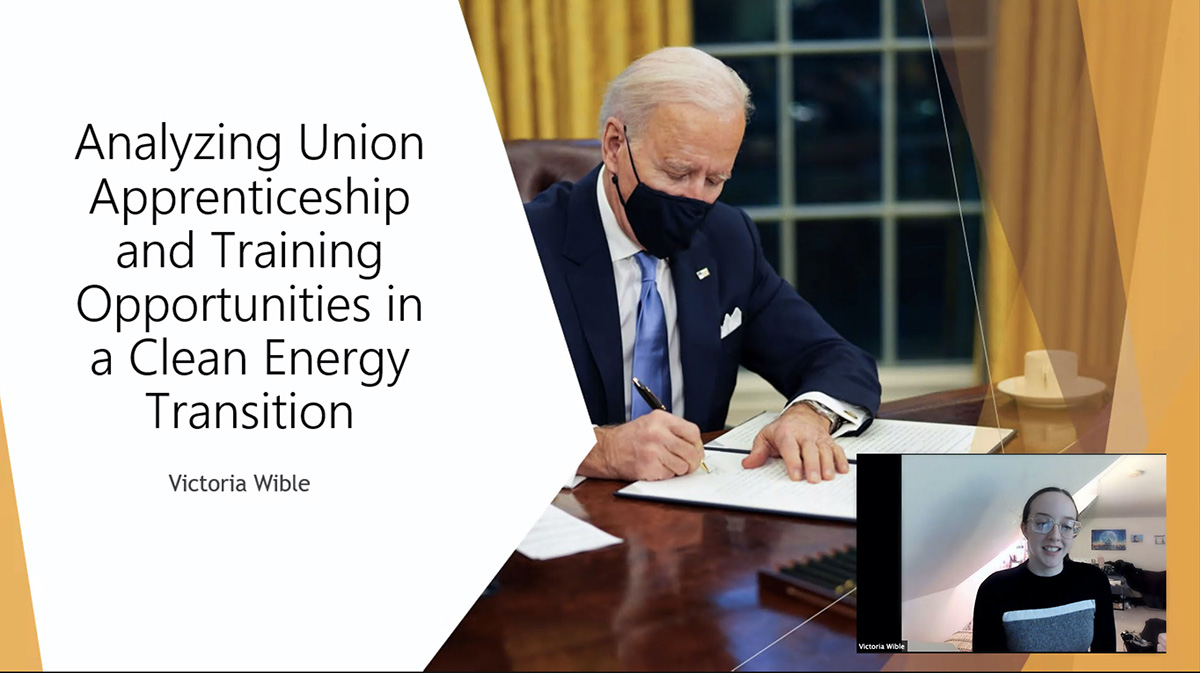Junior Victoria Wible Tackles Energy Transitions in Sociology Co-op
 Sociology major Victoria Wible presents original research at the Mid-Atlantic Undergraduate Social Science Conference.
Sociology major Victoria Wible presents original research at the Mid-Atlantic Undergraduate Social Science Conference.
May 21, 2021
Victoria Wible, a Sociology major and research assistant on co-op this spring with the Labor and Energy Project at Drexel, has hit the ground running. Just three weeks into the start of her position, she presented research at the Mid-Atlantic Undergraduate Social Science Conference, organized through Lebanon Valley College.
Funded by the National Science Foundation, the Labor and Energy Project is led by Associate Professor of Sociology Diane Sicotte, PhD, and Professor of Sociology Kelly Joyce, PhD, and examines the role labor unions can play in energy transitions through in-depth interviews, analysis of union materials and policy analysis.
Within the first few days of her co-op, Wible identified a research topic and began poring over policy documents and coding interview data and union materials to prepare for the presentation. “Presenting my research was intimidating at first, but I felt confident that my research was important to current issues surrounding clean energy and was engaging,” she says. Wible was also grateful for the guidance and knowledge shared with her by Joyce and Postdoctoral Research Fellow of Sociology Arielle Hesse, PhD.
Wible’s presentation focused on how unions talk about training and apprenticeship programs. This is a significant issue, as workers currently employed in fossil fuel industries will need to be reskilled into new jobs in a transition. Her research found that public union materials that discuss training and apprenticeships often focus on the “next generation of workers,” rather than focusing on the need to reskill current energy workers and how this can be accomplished. She juxtaposed her analysis of union material with quotes from in-depth interviews with unionized energy workers to show how reskilling was an important concern for workers as they considered their own futures.
“Working on the Labor and Energy Project here at Drexel has really opened my eyes into the gray area surrounding the energy transition away from fossil fuels and toward clean energy,” Wible explains. “I hope that people can understand more of the issues surrounding workers in fossil fuels and create a more open area of discussion for renewables and equity.”
Held on Zoom, the conference lasted all day and was comprised of five panel sessions and a plenary. Wible’s presentation stood out from many of the others because of her use of qualitative methods and analysis, while many of the other presentations were quantitative. This contrast was a particularly valuable learning experience. It further underscored the value of different approaches to social science research, an awareness that will be particularly useful as Wible continues to pursue her research and analysis on her sociology co-op.